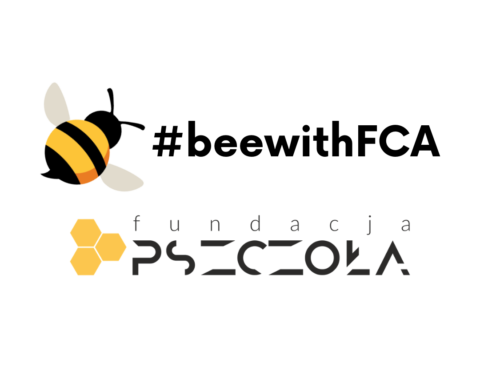
For this year’s Easter action, we have decided to follow our last year’s success and support a foundation.
This time round we have chosen Fundacja Pszczoła (Bee Foundation).
Mariolka bees, as this is our adoptees’ name, are residents of an FCA-dedicated beehive located within an apiary.
Our Clients and partners have been given personalised certificates awarding them the title of a Mariolka guardian.
This is yet another Easter action we create together with our Clients. Last year, our donations bought Easter gifts went to the Siemacha Foundation, whose wards were given an opportunity to spend some time at the seaside. We are proud to be able to do something together again – with the planet and fellow human beings on our minds. We are delighted to be involved in creating something good.
Where did it start?
The #ekoFCA project represents the ecological path of our company which leads to preserving our planet. You know how far we have managed to reach – starting from eco-friendly packaging, through our educational programme and cooperation with various organisations. We have cared for birds by hanging bird houses, and made our employees aware how small changes to our everyday lives can affect our planet. This time we want to focus on our little friends whose work ensures our survival.
Yes, we mean bees!
This is why we started cooperating with Fundacja Pszczoła, which runs its own apiary in the town of Piła with an FCA-dedicated beehive housing thousands of little bees serving the nature.
Why bees?
Bees are the most important insects in the world. They pollinate plants which give fruit, making food production possible. They are crucial members of our ecosystem. In 2019, Earthwatch Institute, a global environmental charity, officially declared bees as the most important creatures on our planet. Unfortunately, climate change, toxic waste and parasites have all landed bees in crisis. This is why we must protect bees!
4000
tyle odmian warzyw uzależnionych jest od zapylania przez owady. I to w samej Europie!
1/3
naszej codziennej diety stanowią produkty, które powstały w wyniku zapylania roślin przez pszczoły miodne i dziko żyjące.
10
tyle lat przetrwa ludzkość na Ziemi po wyginięciu ostatniej członka pszczelej rodziny.